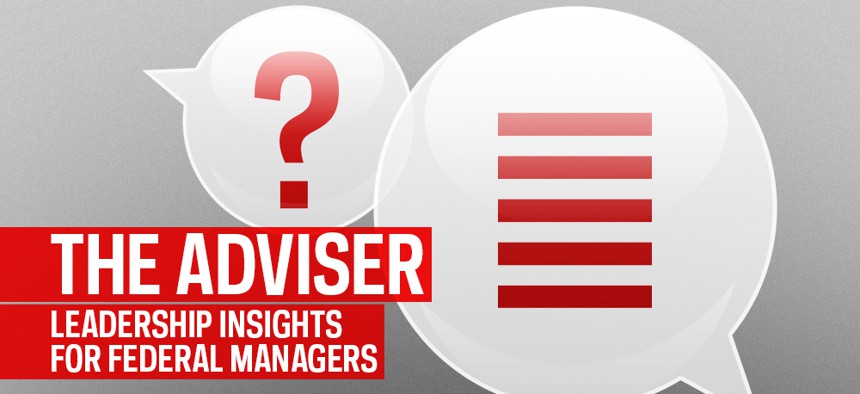You're In Charge, But Who Said Never Let ’em See You Sweat?
Occasional self-doubt can be a sign of a successful and reflective leader.
How does a leader address self-doubt? It arises is all types of situations but particularly in those in which he or she feels inexperienced with a topic or subject matter. -- Anonymous
Self-doubt is not an uncommon feeling when making decisions. Many leaders face such concerns; even experienced ones often don’t always know if they are making the right decision. Such doubt can intensify when making decisions in unfamiliar territory. But what can you do to address it?
First, let’s ask whether it is bad or wrong to suffer from self-doubt. Does it indicate that you are an inferior or bad leader? Are you worried about being a fraud who will soon be found out when people learn that your decision was a bad one?
Occasional self-doubt is an important indicator of a successful and reflective leader. It is all too easy for leaders to be seduced by the power of their position and the deference that comes with it. This seduction can lead to biased and overconfident beliefs that the boss is always right. Reflective self-doubt is a positive indicator that your knowledge and expertise has limits, which is most useful when confronting new challenges.
That said, self-doubt is problematic if it invades every challenge -- big or small --and keeps you from making decisions. If this insecurity affects even decisions that easily fall within your expertise and experience then it may signal some other psychological issue.
An often difficult decision, for example, is to fire a poorly performing employee who also is toxic to the team. If the leader hasn’t been involved in firing employees before, then self-doubt naturally arises: “Am I making the right call for the organization? Am I being too harsh? What responsibility do I have for the welfare of the individual, especially when I hired the person?” If the leader has experience with similar situations and has seen what happens to a team when a toxic worker is not let go, then self-doubt should be diminished or even absent from the decision. If the leader with relevant experience lacks the confidence to make the “right” decision, allowing the team to suffer for years, then he likely should seek counseling for a deeper problem.
What can you do to address self-doubt that arises when dealing with decisions for which you don’t have much experience and knowledge? Here are two strategies that can help leaders think more clearly and thoroughly:
- Frame the situation that requires a decision. Reach out to your employees and other stakeholders -- especially those likely to have different views from your own -- and ask them two simple questions: How would they characterize the situation and how could they approach it differently? The first question provides perspective for your own assessment -- perhaps an earlier rush to judgment may have clouded your creativity. The second question requires the stakeholders to be creative and come up with a different way of looking at the situation, which may spark different ways to approach your decision. Understanding the situation comprehensively from other points of view will give you confidence that you are working on the right problem.
- Share your formulation of the situation with others and then ask them to offer recommendations to resolve it. The point is not to take a poll on which decision is best. Instead, ask why they recommended a particular solution. Listen carefully to their logic to see whether you missed anything in your own analysis. This logic can cause you to re-evaluate your decision and help you be confident that you have thoroughly considered all relevant perspectives.
Addressing self-doubt requires courage, in part because many people are afraid to admit to it. In fact, some people believe that even the hint of such a disclosure shows weakness. On the contrary, taking these steps shows strength of character and self-esteem. Engaging others demonstrates to your team that you think before you act, you want to learn from others to expand your expertise, and that you want to get decisions “right.” Aren’t these leadership qualities to which we all want to aspire?
Duce a mente
(May you lead by thinking)








